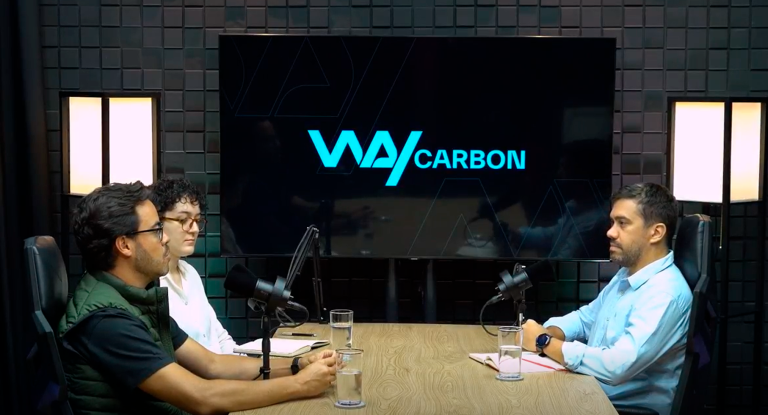What is the function of Climate Week in the climate debate?

One of the largest global events on climate change, Climate Week took place between September 22nd and 29th, bringing together business leaders, politicians and civil society representatives. The event is organized by the Climate Group, a non-profit organization whose goal is to accelerate global climate action. Felipe Bittencourt (CEO), Henrique Pereira (COO) and Luisa Valentim (Head of Business Development) represent WayCarbon in the 2024 edition.
“Global temperatures have been rising faster than science predicted. We are very close to exceeding an average warming of 1.5ºC and witnessing the intensification of extreme weather events. Given this scenario, Climate Week seeks to influence leaders to include climate transition at the center of corporate decision-making, adopting ambitious and urgent actions”, explains Henrique Pereira.
Climate Week NYC is considered the starting point for a season of more intense discussions about our planet, Climate Group CEO Helen Clarkson said during the opening ceremony. “In fact, the issue shouldn’t be seasonal – climate should be at the heart of all international meetings at all levels – whether at the G7, G77, or the bilateral meetings taking place this week at the UN General Assembly”, she said.
Among the main topics addressed at the convention are energy transition, nature-based solutions, climate risk management and the important advances in IFRS (International Financial Reporting Standards). Preparations for the next editions of the Conference of the Parties (COP), the main event on the climate agenda, are also on the program.
Preparations for the next COPs
Held on the first day of the event, the panel “COP 29: The “State of Play and Road to Belém” provided a strategic look at the thematic priorities for COP29 (Baku, Azerbaijan) and COP30 (Belém, Brazil). The roundtable featured meaningful discussions on the evolution of global climate negotiations and the essential financial mechanisms to drive effective climate action. The panel brought together climate experts, policymakers and other stakeholders.
Financed emissions and interoperability of standards
Monday’s program began with a meeting of the members of the Partnership for Carbon Accounting Financials (PCAF). The PCAF is a global partnership of financial institutions working together to develop and implement a harmonized approach to assessing and disclosing the greenhouse gas (GHG) emissions associated with their loans and investments. The event focused on the alignment and interoperability of financial sector standards and initiatives.
“It was clear that interoperability has evolved from data (CDP), methods (SBTi) and standards (NZBA) to a broader set of carbon accounting and regulatory best practices. At the core, the ISSB is working to further integrate the GRI and the CSRD and the grouping with the CDP questionnaire”, said Pereira.
He said, however, that there are still challenges in terms of data availability and dealing with complex assets, such as sovereign debt. “In addition, emerging regulations in various jurisdictions pose a risk of non-convergence for global methodological alignment efforts. I would like to emphasize that, in relation to this topic, the IFRS is carrying out various consultations as new regulations are proposed around the world”, he said.
Energy transition
Also on Monday, the “Financing Energy Transition” Roundtable took place, organized by ICC Brazil. Felipe Bittencourt highlighted the talk by Christophe McGlade, Head of Energy Supply at the IEA, on the urgent need to increase investment in renewable energies if the planet is to reach the goal of net zero emissions. “The main thrust of the talk was on solar energy. For developing countries, except China, it is essential to quadruple investments by 2030. One of the main challenges is the cost of capital in these countries. In the Brazilian context, I believe that the issue of grid connection is one of the most critical factors to be considered,” he said.

 EN
EN  ES
ES PT
PT





